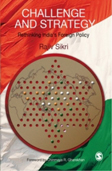Requiem in Pakistan
March 6, 2011: Two assassinations in Pakistan: in January, Salman Taseer, governor of Punjab, by one of his bodyguards; last week, Shahbaz Bhatti, Minister for Minorities, outside his Islamabad home, with the Pakistani Taliban claiming responsibility. Both had called for changes in Pakistan’s blasphemy law, passed to put the power of the State, including capital punishment, behind a ban on offense to Islam, but frequently used to settle scores and otherwise oppress non-Muslims or, more generally, opponents. Continue reading “Requiem in Pakistan”


